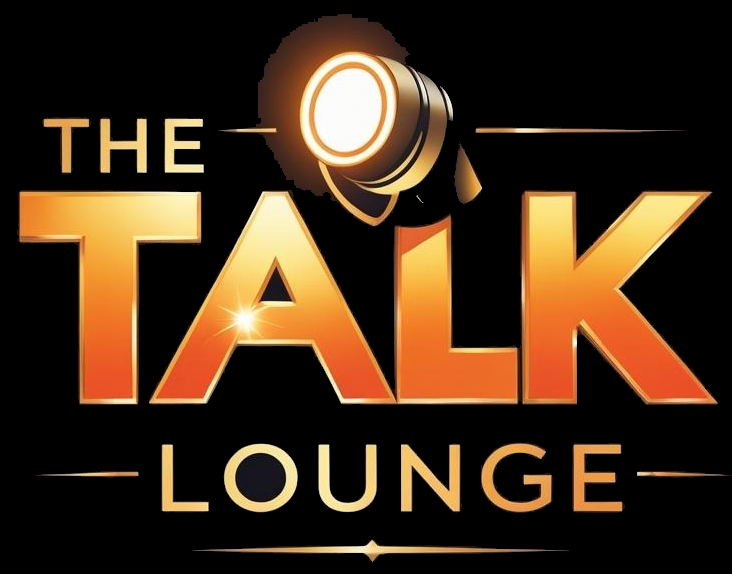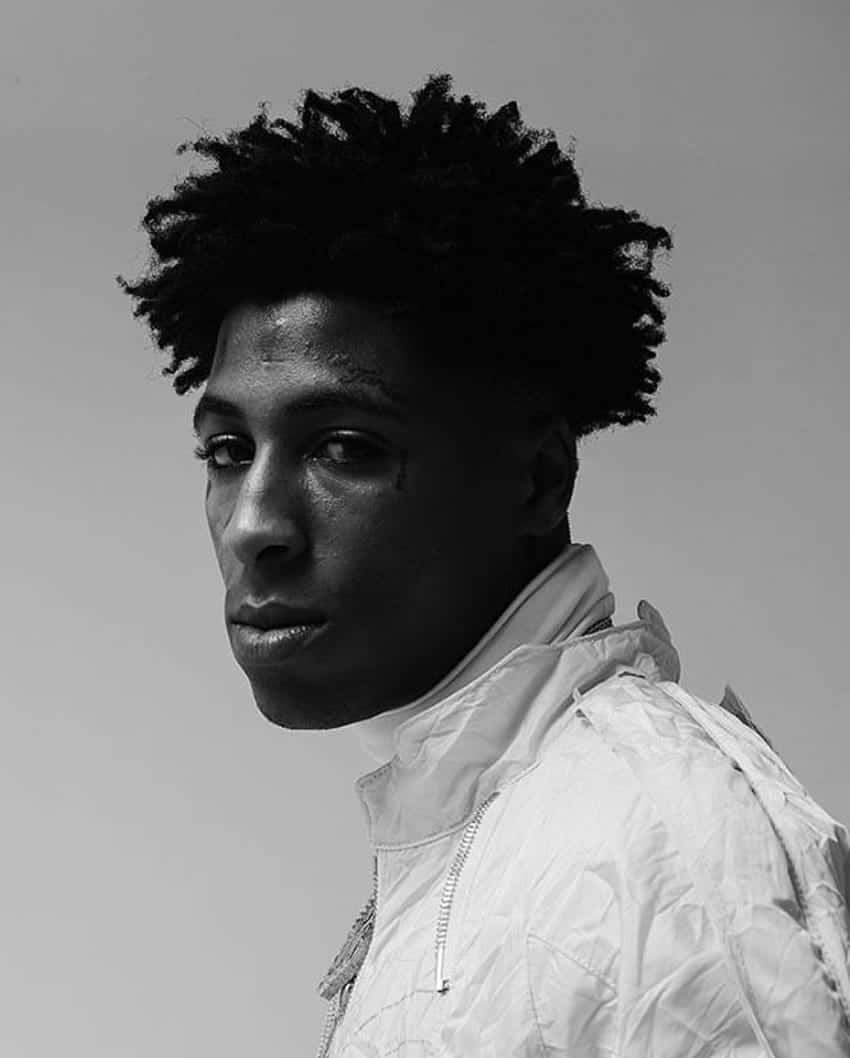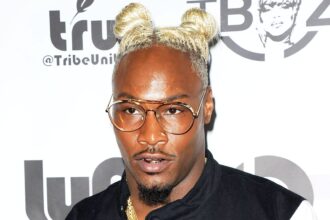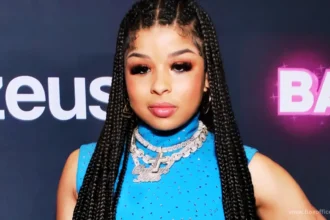Three scars mark his forehead. Permanent reminders of a broken neck. A head brace. A four year old child in a wrestling accident that could have killed him.
- The Childhood Nobody Talks About
- When Everything Fell Apart
- The Music That Saved Him (And Millions)
- The Legal Troubles That Defined Him
- The Side of YoungBoy Nobody Wants to See
- The Father Nobody Acknowledges
- The Complexity The Headlines Ignore
- The Music Industry’s Uncomfortable Truth
- The Presidential Pardon That Changed Everything
- Why We Get Him Wrong
- The Bottom Line
But those aren’t the only scars Kentrell DeSean Gaulden carries. Some scars you can’t see. Some scars are written in arrest records and headlines. Some scars are sung in confessions over piano melodies at 3 AM. And some scars, the deepest ones, are carried by a generation that sees their own pain reflected in his music.
The world knows him as NBA YoungBoy. Violent. Dangerous. Controversial. The rapper with the long rap sheet and the longer list of baby mamas. The artist who can’t stay out of trouble. The young man who seems determined to throw away every opportunity handed to him.
But what if that’s not the whole story? What if the headlines only tell half the truth? What if the kid from North Baton Rouge who broke his neck at four years old, who watched his father get sentenced to 55 years before he could walk, who was raised by a grandmother who later died while he sat in juvenile detention, is actually trying to save the same community everyone accuses him of destroying?
What if we’ve been wrong about NBA YoungBoy this whole time?
The Childhood Nobody Talks About
October 20, 1999. Kentrell DeSean Gaulden enters a world already stacked against him. His father, sentenced to 55 years in prison. Gone before Kentrell could form memories of his face. His mother, Sherhonda Gaulden, struggling. Too young. Too overwhelmed. Unable to provide the stability a child needs.
So his grandmother stepped in. In North Baton Rouge, one of Louisiana’s most dangerous neighborhoods, she raised him. Loved him. Tried to protect him from a world that had already decided what his future would be.
At four years old, Kentrell broke his neck in a wrestling accident. A childhood moment turned into a life threatening injury. He wore a halo brace, metal screwed into his skull to hold his head in place while his vertebrae healed. The brace left three deep scars across his forehead. Permanent. Visible. A mark he’d carry forever.
“It was hard but fun,” YoungBoy told The FADER years later, describing his early childhood. “We had to make it fun.”
Had to. Not chose to. Had to. Because when you’re growing up in North Baton Rouge with no father, limited resources, and three scars on your forehead from an accident that could have paralyzed you, you learn to make the best of hell.
Lil Phat, a Baton Rouge rapper, was his only real influence. Not Lil Wayne, though people always make that comparison. Not Kevin Gates, though they’d later collaborate. Lil Phat. The lesser known hero of Baton Rouge rap who was gunned down in 2012 at just 20 years old.
Kentrell was 12 when Lil Phat died. Old enough to understand that in his city, even success didn’t guarantee survival. Old enough to know that being talented, being loved, being somebody, none of it mattered when bullets start flying.
When Everything Fell Apart
Ninth grade. That’s when Kentrell dropped out of school. Not because he was dumb. Not because he didn’t understand the importance of education. But because survival became more important than algebra.
“I didn’t finish school, but I learned a lot on my own,” he told The FADER. Learning on your own means learning from the streets. It means figuring out how to eat when there’s no food. It means understanding that nobody’s coming to save you.
Then came the arrests. Robbery. Juvenile detention. Kentrell was sent to a detention center in Tallulah, Louisiana. And while he was locked up, his grandmother, the woman who raised him, the only stable force in his chaotic life, passed away.
Let that sink in. Imagine being a teenager. Already dealing with poverty, violence, absent parents. Then you get locked up for trying to survive. And while you’re sitting in a cell, the one person who truly loved you unconditionally dies. And you can’t even go to the funeral.
That’s trauma. That’s the kind of pain that reshapes a person. That’s the moment Kentrell Gaulden became NBA YoungBoy. Never Broke Again. Because being broke, being without, being abandoned, that feeling couldn’t happen again. He wouldn’t allow it.
In that detention center in Tallulah, with grief tearing him apart and no healthy way to process it, Kentrell started writing. Lyrics. Raw. Unfiltered. Painful. Those early songs weren’t about flexing or stunting. They were therapy sessions set to beats.
The Music That Saved Him (And Millions)
At 14, Kentrell bought a microphone from Walmart. The cheapest one they had. Set it up wherever he could find space. And started recording.
His first mixtape, “Life Before Fame,” dropped in 2015. He was 16. The production was rough. The quality wasn’t great. But the emotion? The authenticity? That was undeniable.
“Mind of a Menace” followed. Then “Mind of a Menace 2.” Then “Before I Go.” Each project raw, honest, unfiltered. He rapped about his father’s 55 year sentence. About his grandmother’s death. About violence, poverty, loyalty, betrayal. About wanting to escape but feeling trapped by circumstances.
“On my heart, that’s on my soul, I won’t tell no lies / Uncle told now my Daddy doin’ 55,” he raps on “Cross Me,” referencing his father’s sentence with the kind of matter of fact pain that only comes from living it.
In 2016, “38 Baby” changed everything. The mixtape featured Boosie Badazz and Kevin Gates, Baton Rouge legends who saw something special in the kid with the scars on his forehead. Suddenly, YoungBoy wasn’t just a local artist. He was being noticed.
The views started piling up on YouTube. Millions. Then tens of millions. His music wasn’t getting radio play. Major labels weren’t pushing him yet. This was organic. Real people, mostly young, mostly struggling, finding his music and connecting with it on a level that transcended entertainment.
The Legal Troubles That Defined Him
But success didn’t mean peace. In 2016, at 17, YoungBoy was arrested on two counts of attempted first degree murder connected to a drive by shooting in Baton Rouge. He faced potentially spending the rest of his life in prison.
While locked up awaiting trial, he kept making music. “Win or Lose.” “Don’t Matter.” “Too Much.” These songs, recorded from jail, became massive hits. “Win or Lose” went viral. Made him a household name. Proved that bars couldn’t stop his music.
He eventually took a plea deal. Aggravated assault. Ten years suspended sentence. Three years probation. He was released in May 2017. A week later, he dropped “Untouchable.” It peaked at number 95 on the Billboard Hot 100. His first charting single.
Then came the deal. $2 million. Five albums. Atlantic Records and Artist Partner Group. At 18 years old, Kentrell Gaulden was officially a rap star.
But the arrests didn’t stop. 2018. Kidnapping and weapons charges in Florida involving his girlfriend at the time. 2019. Involved in a Miami shooting that left one person dead. He violated probation. Did 90 days. Then 14 months of house arrest. That’s when “AI YoungBoy 2” dropped and went number one.
2020 to 2022. Two separate federal gun cases. Baton Rouge. Los Angeles. Beating the California charge but staying tangled in Louisiana courts. Years of house arrest. Ankle monitors. Supervised release. Unable to tour. Unable to move freely.
- Utah arrest for allegedly leading a prescription fraud ring. Identity fraud. Forgery. He pled guilty to ten charges but avoided prison time with fines and probation.
The pattern is clear. YoungBoy keeps getting arrested. The charges keep coming. The headlines keep painting him as a menace. A danger to society. Someone who can’t be reformed.
But here’s what the headlines don’t tell you.
The Side of YoungBoy Nobody Wants to See
In 2017, right after releasing “AI YoungBoy,” Kentrell gave away $20,000 in cash in the neighborhood where he grew up. Just walked through North Baton Rouge handing out money to people who needed it. No cameras. No press release. Just helping.
In 2018, he gave a fan $10,000 for graduating high school. He wanted to encourage young people to stay in school, even though he didn’t. He didn’t want them making the same choices he felt forced to make.
April 2019. YoungBoy returned to Baton Rouge to feed the homeless. Set up a shelter. Handed out food. His mother, Sherhonda Gaulden, helped organize it. This wasn’t a PR stunt. This was a young man remembering what it felt like to be hungry.
August 2019. While incarcerated, YoungBoy funded a “Back to School Drive.” School supplies. Backpacks. Clothes. Everything kids need but some families can’t afford. From a jail cell, he called in to tell the kids: “I hope everybody has fun. Thank you for coming.”
Think about that. Locked up. Facing serious charges. And he’s still thinking about making sure kids in his community have school supplies.
- After his album “Top” went number one, his team donated school supplies to Capitol Elementary in Sacramento, California, on his behalf. He was still under house arrest. Still fighting legal battles. Still giving back.
November 2022. YoungBoy partnered with NAACP to donate 500 turkeys to Baton Rouge families for Thanksgiving. He also funded a full Thanksgiving meal at Boil & Roux restaurant as part of his “Stop The Violence” movement.
“Aye! Stop the violence. Look at me! I could promise you it’s a bigger side of life. Stop the violence,” he said in a statement.
Stop the violence. From the rapper everyone calls violent.
December 2022. YoungBoy partnered with his long time rivals Fredo Bang and TG Kommas, alongside NAACP and Metro Health Education, to donate thousands of toys to children in Baton Rouge for Christmas. They donated to the children’s hospital. They hosted a private dinner for people who lost their homes in fires.
This man supposedly at war with other Baton Rouge rappers put aside beef to help children have Christmas presents.
September 2025. Before the first show of his Make America Slime Again Tour in Dallas, YoungBoy donated $50,000 to two nonprofits. $25,000 to Manifest Freedom, which supports entrepreneurs and creatives impacted by the criminal legal system. $25,000 to Urban Specialists, which tackles community violence through mentorship.
“Basically just to help try to stop the crime, a lot of people be getting hurt,” Kentrell told WFAA. “It ain’t really cool at this point to me. So I just want to help in any way I could.”
Atong Lucky, founder of Urban Specialists, said YoungBoy’s support “sends messages throughout America that redemption and transformation are real for these young people.”
Redemption. Transformation. These are words rarely used to describe NBA YoungBoy. But they should be.
The Father Nobody Acknowledges
YoungBoy has 11 children. Eleven. And critics love to weaponize this fact. Irresponsible. Reckless. Baby daddy to multiple women. The stereotypes write themselves.

But dig deeper. Kentrell’s father was sentenced to 55 years when he was a baby. He grew up without a father figure. No male role model teaching him how to be a man, a partner, a parent.
So yes, he has 11 children with different women. And yes, that’s a lot. But he’s also present in their lives. He talks about them constantly in interviews. He references being a father in his music. He uses fatherhood as motivation to stay out of trouble, to keep creating, to build generational wealth.
“I felt like I had a responsibility to my artists to make sure to find the right partner for my label,” YoungBoy said when discussing his Never Broke Again record label, which he founded with OG 3Three and Montana.
Responsibility. From someone the world calls irresponsible.
He started Never Broke Again to help his friends get into the music industry. To give new artists opportunities. Quando Rondo. NoCap. DeeBaby. These artists have careers because YoungBoy created a platform for them.
The Complexity The Headlines Ignore
Here’s the uncomfortable truth: NBA YoungBoy can be both things at once. He can have a long arrest record AND genuinely care about his community. He can make music about violence AND donate to organizations fighting violence. He can struggle with anger, trauma, and poor decisions AND simultaneously try to be better.
Human beings are complex. Especially human beings who experienced the kind of childhood trauma Kentrell survived. A father in prison for life. A mother who couldn’t raise him. A grandmother who died while he was locked up. Poverty. Violence. A broken neck at four years old.
That level of trauma doesn’t just disappear because you sign a record deal. Success doesn’t erase pain. Money doesn’t heal childhood wounds.
“Without loyalty, you won’t accomplish anything,” YoungBoy told The FADER. Loyalty. That’s his core value. The thing that matters most. Because loyalty is what he never consistently received. So he gives it. Fiercely. To his crew. His Never Broke Again family. The people who’ve stuck with him.
When mainstream media calls him dangerous, his fans see someone who survived danger. When critics call him violent, his community sees someone trying to stop violence. When people mock his legal troubles, his supporters remember that the system was designed to trap people like him.
The Music Industry’s Uncomfortable Truth
NBA YoungBoy has been YouTube’s most streamed rapper for FIVE STRAIGHT YEARS. No major radio push. No massive industry backing until recently. Just pure, organic connection with millions of fans.
He’s the youngest artist ever to hit 100 songs on the Billboard Hot 100. He’s dropped three albums in a single year. Multiple times. His work ethic is absolutely relentless.
“Outside Today” went quadruple platinum. “Bandit” with Juice WRLD hit the top ten. “AI YoungBoy 2” debuted at number one. Every project charts. Every release does numbers. His fans are arguably the most devoted in hip hop, compared to Nicki Minaj’s Barbz in terms of intensity and loyalty.
Yet he gets a fraction of the respect given to artists with weaker numbers and less cultural impact. Why? Because his story is messy. Because his life doesn’t fit the redemption narrative the industry wants to sell. Because acknowledging his talent means acknowledging the failures of the system that created his circumstances.
The Presidential Pardon That Changed Everything
May 2025. President Donald Trump granted Kentrell Gaulden a pardon. After years of federal charges, house arrest, ankle monitors, and legal battles, he was free.
“I want to thank President Trump for granting me a pardon and giving me the opportunity to keep building as a man, as a father, and as an artist,” YoungBoy said in a statement. “This moment means a lot. It opens the door to a future I’ve worked hard for and I am fully prepared to step into this.”
As a man. As a father. As an artist. Those are the identities he claims. Not criminal. Not threat. Man. Father. Artist.
The Make America Slime Again Tour kicked off September 1, 2025, in Dallas. His first major tour since 2020. Five years of being unable to perform live. Five years of his fans waiting. And when he finally stepped on stage, the reaction was religious. Fans compared it to a spiritual experience.
Why We Get Him Wrong
We want simple narratives. Good guys and bad guys. Heroes and villains. Redemption arcs that follow predictable patterns. NBA YoungBoy doesn’t give us that. He’s complicated. Contradictory. Frustrating.
He’ll donate $50,000 to stop gang violence and then rap about violence in his next song. He’ll fund Christmas toy drives and then get arrested for prescription fraud. He’ll talk about being a father and then have another child with another woman.
It doesn’t make sense. Unless you understand trauma. Unless you recognize that healing isn’t linear. Unless you accept that someone can be trying to do better while still making mistakes.
“The only thing that scares me is dying,” YoungBoy told The FADER. That’s what keeps him up at night. Not jail. Not legal trouble. Death. Because in Baton Rouge, death is always close. Friends die. Rivals die. Innocent people die. Death is the most likely outcome for young Black men in his city.
So he keeps creating. Relentlessly. Because creating means living. Every song is proof he survived another day. Every album is a middle finger to everyone who expected him to be dead or locked up by now.
The Bottom Line
Kentrell DeSean Gaulden is 25 years old. He’s lived more trauma in two and a half decades than most people experience in a lifetime. He’s been arrested. Made mistakes. Hurt people. Disappointed people. Let himself down.
He’s also donated hundreds of thousands of dollars to his community. Fed the homeless. Given kids school supplies. Funded anti violence programs. Created opportunities for other artists. Supported 11 children. Built a music empire from a Walmart microphone and sheer determination.
The scars on his forehead tell a story. A four year old in a head brace. A broken neck that should have ended his life before it began. But he survived. And he’s been surviving ever since.
Is NBA YoungBoy perfect? No. Is he a role model? Probably not. Has he made terrible decisions that deserve criticism? Absolutely.
But is he trying? Is he complicated? Is he more than the headlines suggest? Yes. Yes. And yes.
Maybe it’s time we stopped deciding who deserves redemption based on how neatly their story fits our expectations. Maybe it’s time we acknowledged that trauma shapes people in ways we can’t always understand. Maybe it’s time we gave the kid from North Baton Rouge with three scars on his forehead the same grace we give others.
Or maybe we’ll keep calling him violent while ignoring the violence that shaped him. Keep calling him dangerous while ignoring the danger he survived. Keep reducing him to his worst moments while dismissing his best ones.
Either way, NBA YoungBoy will keep making music. Keep donating to his community. Keep being complicated. Keep surviving.
Because that’s what he does. That’s all he knows how to do.
Never Broke Again isn’t just a name. It’s a promise. A vow. A declaration that no matter how many times life tries to break him, he’ll find a way to keep going.
And maybe that’s the most heroic thing of all.





